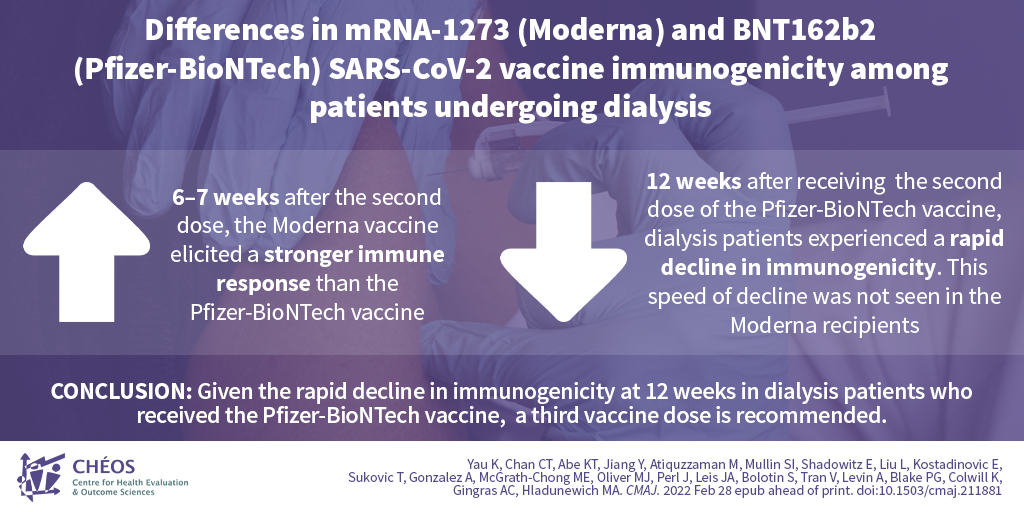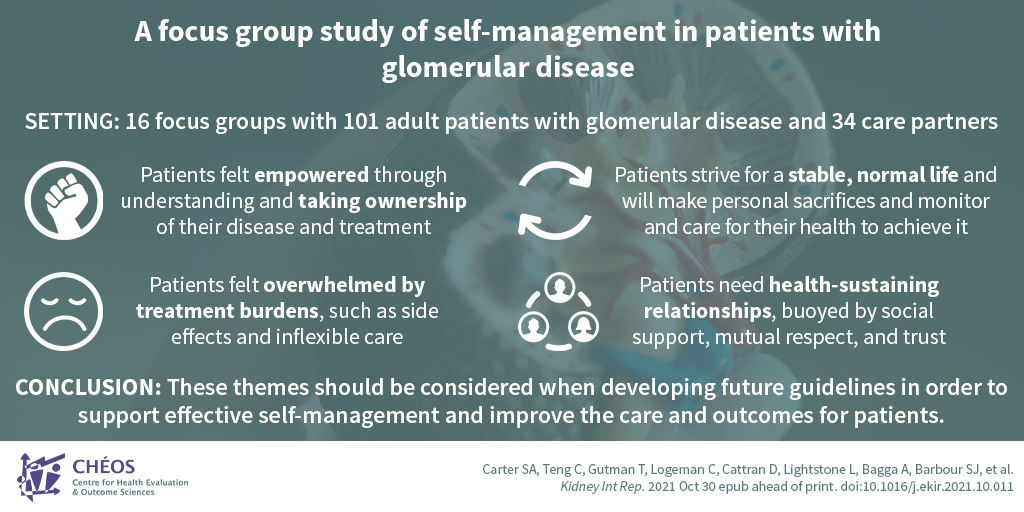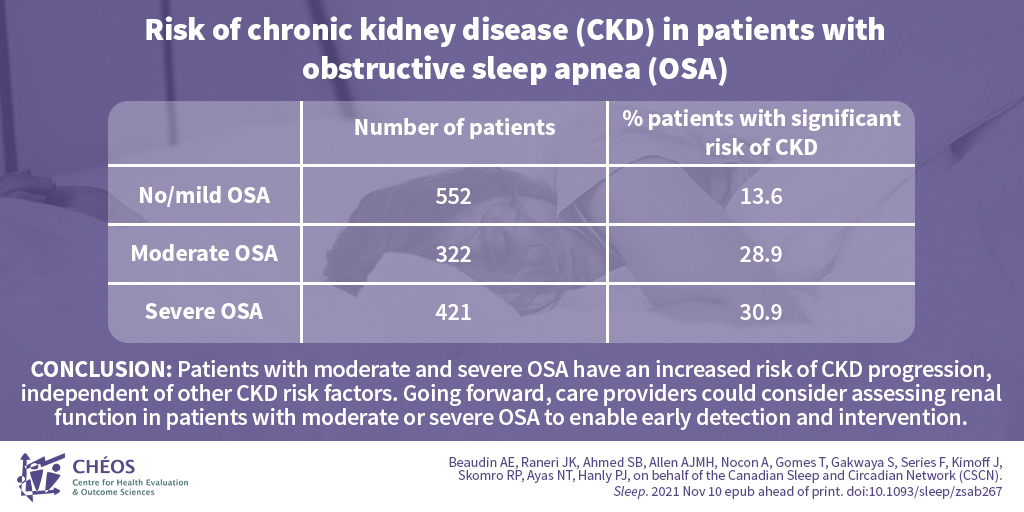The Evidence Speaks Series is a recurring feature highlighting the latest in CHÉOS research. This series features summaries of select publications and is designed to keep media and the research community up to date with CHÉOS’ current research results in the health outcomes field. In recognition of Kidney Month, this edition is focused on nephrology-related research.
To ensure this research is quick and easy to share, we are now providing social cards that you are free to save and use as you see fit.
People undergoing dialysis expected to benefit from a third dose of COVID vaccine
Yau K, Chan CT, Abe KT, Jiang Y, Atiquzzaman M, Mullin SI, Shadowitz E, Liu L, Kostadinovic E, Sukovic T,…Levin A, et al. Differences in mRNA-1273 (Moderna) and BNT162b2 (Pfizer-BioNTech) SARS-CoV-2 vaccine immunogenicity among patients undergoing dialysis. CMAJ. 2022 Feb 28 epub ahead of print.
CHÉOS Scientist Dr. Adeera Levin joined colleagues to investigate the immunogenicity (ability to provoke an immune response) of the mRNA-1273 (Moderna) and BNT162b2 (Pfizer-BioNTech) COVID-19 vaccines among people undergoing dialysis. The group analyzed the strength of immune responses elicited in patients who received each vaccine by measuring the levels of antibodies at 6–7 and 12 weeks after the second dose and comparing them to antibody levels from control subjects who previously had COVID-19. The study found that the Moderna vaccine elicited a stronger response in patients undergoing dialysis than the Pfizer-BioNTech vaccine. Furthermore, 12 weeks after receiving the second dose of the Pfizer-BioNTech vaccine, dialysis patients experienced a rapid decline in immunogenicity — a trend not seen to the same extent in the Moderna recipients — leading the researchers to conclude that a third dose of the Pfizer-BioNTech vaccine should be recommended for this population.

—
People with glomerular disease feel empowered by taking ownership of their health
Carter SA, Teng C, Gutman T, Logeman C, Cattran D,…Barbour SJ, et al.. A Focus Group Study of Self-Management in Patients With Glomerular Disease. Kidney Int Rep. 2021 Oct 30 epub ahead of print.
CHÉOS Scientist Dr. Sean Barbour and with a host of researchers from around the world conducted 16 focus groups to understand how adult patients with glomerular disease and their care partners feel about managing their disease. The researchers identified four themes: 1) patients feel empowered by understanding and taking ownership of their disease and treatment; 2) patients feel overwhelmed by treatment burdens, such as side effects and inflexible care; 3) patients strive for stable, normal lives and will make personal sacrifices and take extra care of their health to achieve that; and 4) patients need supportive, meaningful relationships that sustain their health. The study concluded that these themes should be considered when developing future practice and policy guidelines in order to support effective self-management and improve the care and outcomes for people with glomerular disease.

—
Obstructive sleep apnea increases the risk of chronic kidney disease progression
Beaudin AE, Raneri JK, Ahmed SB, Allen AJMH, Nocon A,… Gomes T, Gakwaya S, Series F, Kimoff J, Skomro RP, Ayas NT, Hanly PJ,et al., on behalf of the Canadian Sleep and Circadian Network (CSCN). Risk of chronic kidney disease in patients with obstructive sleep apnea. Sleep. 2021 Nov 10 epub ahead of print.
Obstructive sleep apnea (OSA) is common among people with chronic kidney disease (CKD) and may also contribute to CKD development, as OSA can interrupt oxygen availability in the body. CHÉOS’ Dr. Najib Ayas and the Canadian Sleep and Circadian Network took a deeper dive into the risk and prevalence of CKD among patients with OSA. Among a cohort of 1,295 adults, 552 had no or mild OSA, 322 had moderate OSA, and 421 had severe OSA. Blood and urine samples were analyzed to assess kidney function. The results indicated that patients with moderate and severe OSA were more likely to experience CKD progression than those with no or mild OSA; however, 73 per cent of these patients were unaware of that risk. These results suggest that care providers could consider performing kidney function tests on patients with moderate or severe OSA in order to detect potential CKD early and start interventions to reduce the risk of disease progression.




